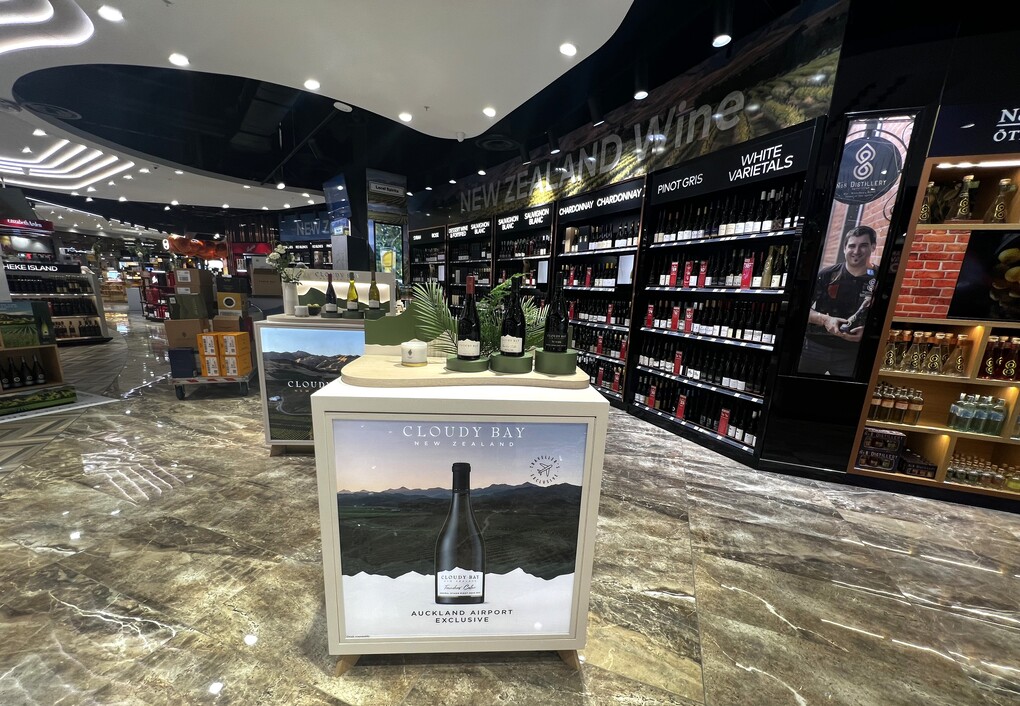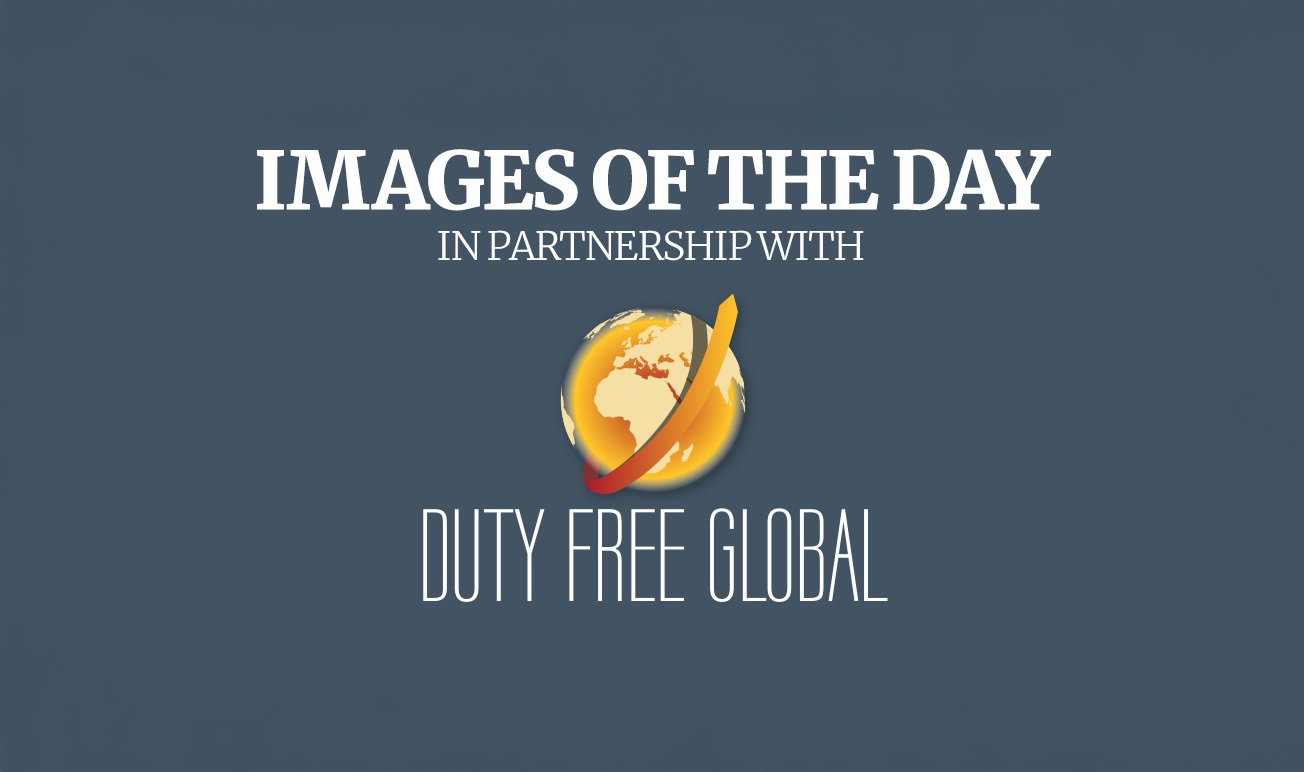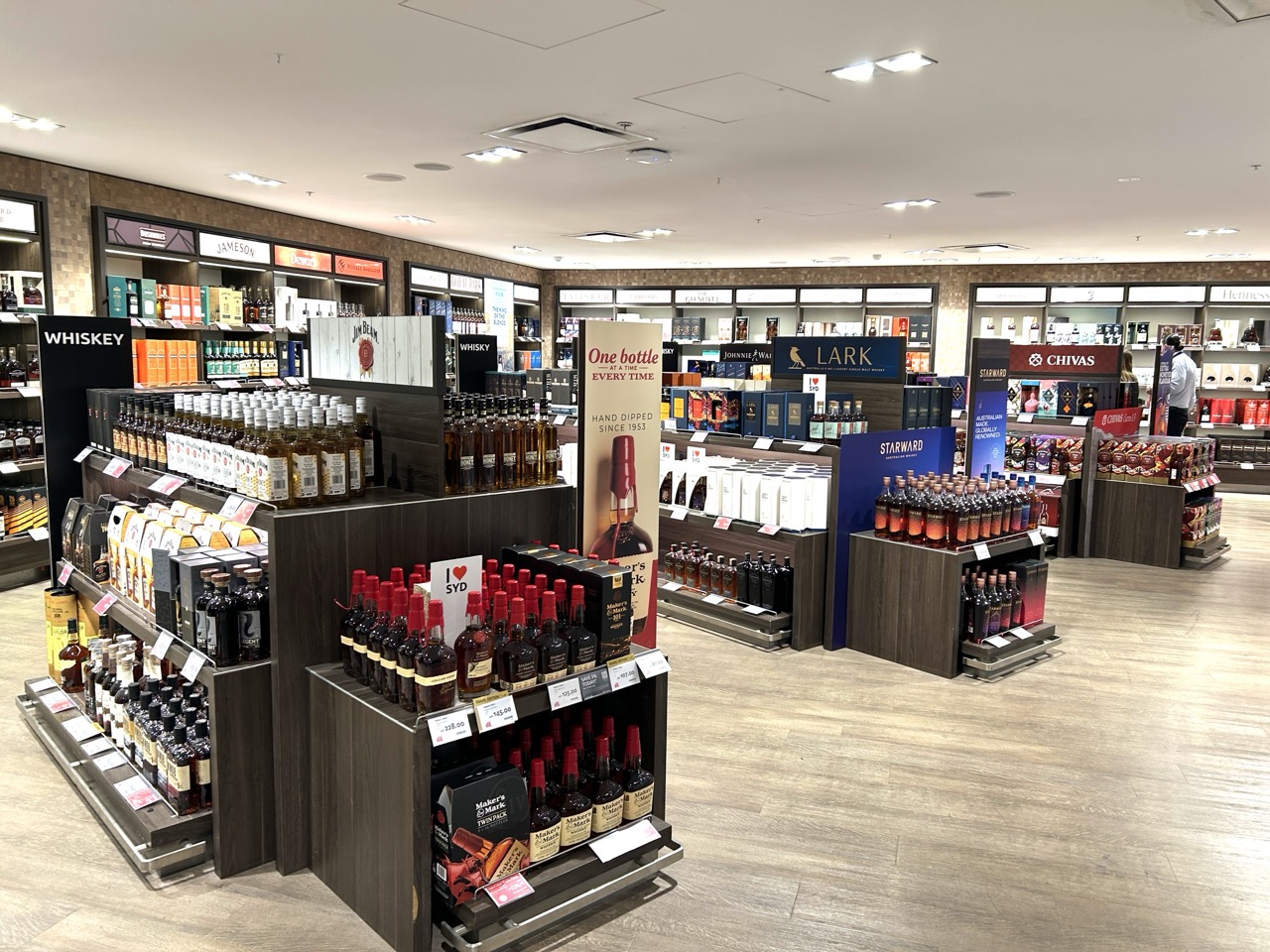BRAZIL. The first Latin American border store conference (Encuentro de Frontera 2019) began at the Sheraton Porto Alegre on Tuesday morning (5 November), writes John Gallagher. Some 170 delegates gathered to examine the potential for the duty free land border business in Brazilian territory.
As reported, Brazil’s federal revenue agency Receita Federal recently granted licences to begin trading in the new channel, with 32 twin border cities authorised to open duty free shops. Dufry opened its first store in Uruguaiana on the Argentinean frontier in August, with more to follow.
The official welcome at Encuentro de Frontera was provided by the Secretary Generals of the joint organisers, José Luis Donagaray of South American Duty Free Association ASUTIL and Carlos Loaiza of CEFSU, the Chamber of Uruguayan Free Shop Operators.

Donagaray explained that both organisations went forward with the conference despite clashes with other industry events and elections in several countries in the region. He said there was strong momentum for the event given the number of information requests received from suppliers and other industry players.
Donagaray said that the location of Porto Alegre had been selected because the major political force behind the new law authorising the duty free stores came from politicians from the city. He also confirmed that Porto Alegre would be connected by air with sister towns Santana do Livramento and Rivera early in 2020, which would boost the travel retail industry.
Carlos Loaiza promised that CEFSU would continue its lobbying activities to ensure that the border store operators in all Mercosur countries could compete on a level playing field. He stated his desire that the Brazilian business would grow to be as important as the Uruguayan business where in some towns it accounts for more than 30% of the employment opportunities for the active population.
The morning featured an in-depth description of the activities carried out by the Brazilian Customs authorities, from Luiz Fernando Lorenzi, the regional head for the Receita Federal in Rio Grande do Sul province.
The organisation has authorised the opening of seven stores from eight applications lodged, with the one remaining application still being reviewed, he confirmed.
According to official Customs data more than US$600,000 had been invoiced by the stores that had opened by the end of October and Lorenzi expected this figure to rise substantially over the next few months. He stressed that the new legislation involved learning processes for the potential operators and his employees but that the bureaucratic process was moving much faster than at the start of the year.
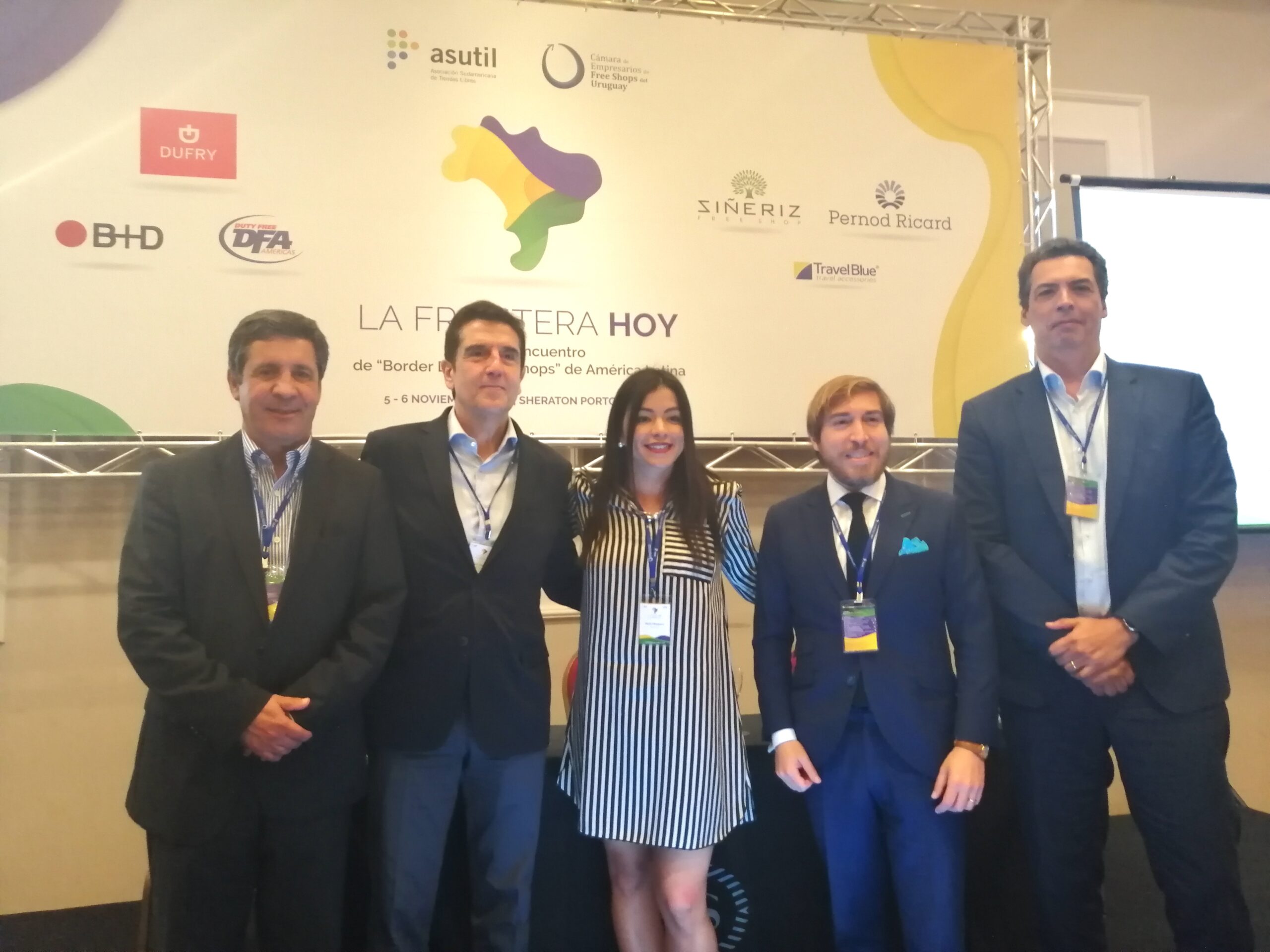
Flamboyant Argentine economist Carlos Melconian followed with an analysis of the world and regional economies and the impact on travel retail.
Melconian noted that the short-term future of the development of the world economy would depend on how the trade war between USA and China progresses. Between them, the two states account for more than 40% of global GDP; he expressed concern that if tit-for-tat trade sanctions continued, the world could slide into recession.
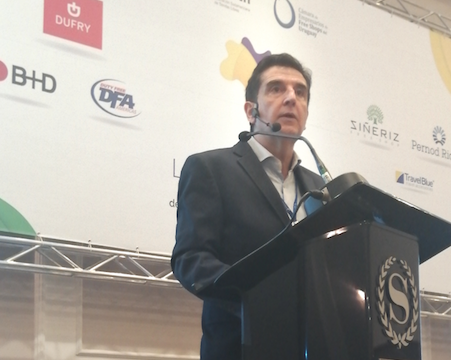
Melconian went on to pose questions about the Brazilian economy. He wondered why Brazil wasn’t able to grow its GDP when the basic macroeconomic factors were favourable with low inflation, relatively low debt and a steady and competitive exchange rate.
He ventured that more economic and fiscal reforms may be necessary in addition to recent pension reforms. Argentina was a much more complicated case, according to Melconian. High inflation and an extremely volatile exchange rate, combined with the need to negotiate a new deal with the International Monetary Fund, will test the political abilities of the President-elect Alberto Fernandez, who is due to take office in December, he said.
Maria Villanueva of travel retail researcher m1nd-set presented her company’s latest results on the behavior of Latin American consumers at duty free border stores. Villanueva pointed out that the conversion factor at border stores was consistently higher than at airport stores given that shop visitors made a particular effort to shop for themselves or for gifts and that many shoppers consistently pre-planned their purchases.
Shoppers also interacted more (than in other channels) with shop personnel to get product or brand information or to find out more about promotions or travel retail exclusives. Shoppers tended to spend more and were generally more satisfied with the whole shopping experience, she said. The outlook for this new channel is positive according to Villanueva, with further investments from retailers in bigger and brighter stores planned.
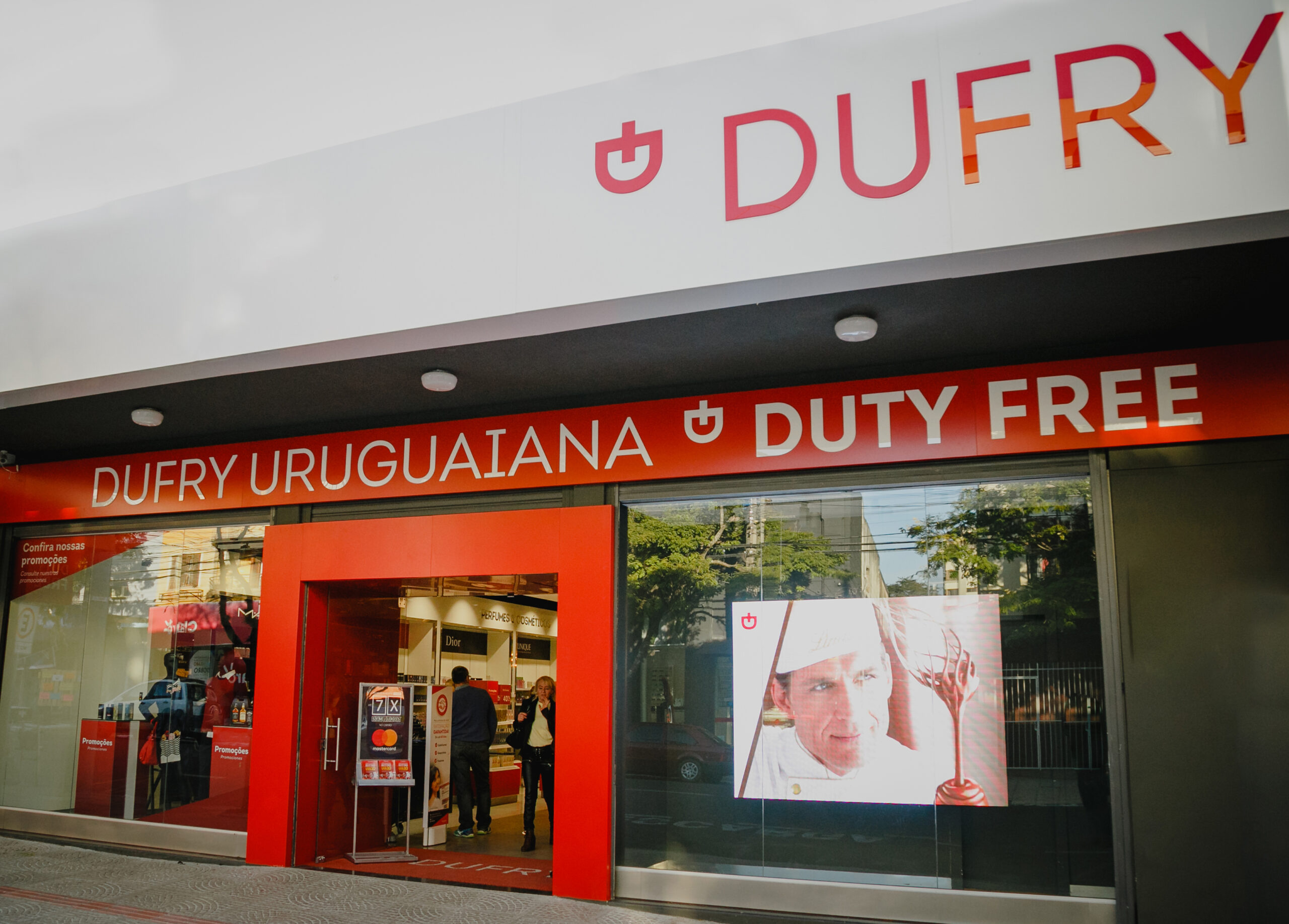
The morning session closed with presentations from the five industry players that have opened stores over the past few months. Representatives from Dufry do Brasil, Free Shop Caraballat, New York Free Shop, Central Free Shop and Duty Free Americas explained their individual stories to conference delegates.
Marcos Lemos of Free Shop Caraballat explained how sales had progressed since the opening of his 400sq m store in Jaguarão. Lemos described details of the early bureaucratic and logistical challenges but said he and his fellow shareholders were immensely happy to have carried on and opened the store. Sales are in line with the initial budget, he said, and the partners hope to open an additional store early in 2020.
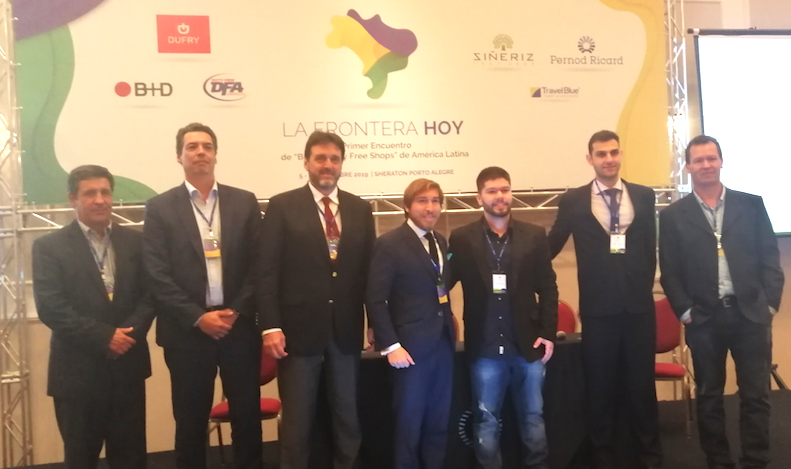
Thiago Salman of Central Free Shop also detailed the problems that they had encountered on the way to opening last month but again stressed that the efforts had been rewarded with steady and growing sales.
The biggest store in Uruguaiana, the 2,400sq m New York Free Shop, only opened last week, with Director Areff Salman inviting all delegates to visit. The new store is spread over five floors and promises to be an important retail player in the town.
Carlos Rabat of Duty Free Americas gave details of the company’s new store in Uruguaiana and described plans for other investments in Brazil. Dufry Regional COO Gustavo Fagundes described the learning processes that his team had to deal with before opening their first border store. All of the players talked of the bureaucratic difficulties that required attention but now that these have been overcome, each plans further store investment.







